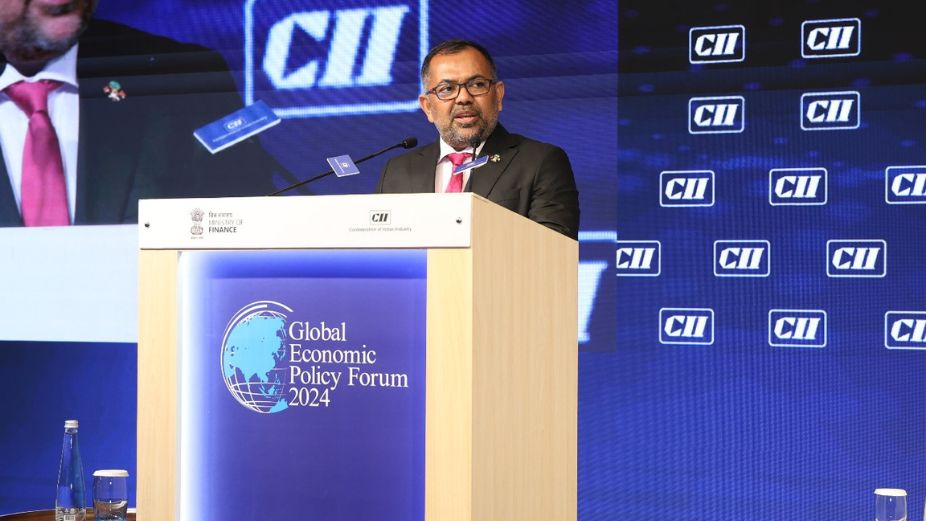
Finance Minister Moosa Zameer has called for innovative thinking and collaborative efforts to address the fragility of the global economy, which has been impacted by conflicts and natural disasters. Speaking at the second edition of the Global Economic Policy Forum, hosted by the Confederation of Indian Industry (CII) in New Delhi, Zameer highlighted the interconnected challenges facing the global economy and emphasised the urgent need for sustainability-focused policies.
Global Economic Policy Forum: A Platform for Dialogue
The Global Economic Policy Forum serves as a platform for thought-provoking discussions on contemporary global and Indian economic policy issues. It aims to enrich the economic policy debate by bringing together research and evidence-based perspectives from global experts, academics, and think tanks, alongside experience-based insights from industry leaders. The forum addresses global economic policy issues, providing ideas to achieve India’s ambition of becoming a developed nation by 2047.
Addressing Multifaceted Global Crises
In his speech, Zameer discussed the ongoing repercussions of the Russia-Ukraine conflict and unrest in the Middle East, noting their significant impact on global markets. He pointed out that these events have exacerbated inflationary pressures, necessitating policies that balance immediate economic recovery with long-term sustainability.
Challenges for Small Island Developing States
Zameer acknowledged that while inflation affects economies worldwide, Small Island Developing States (SIDS) like the Maldives are particularly vulnerable to external shocks. He highlighted the strain on fiscal resources due to rising costs of imports, especially energy and food, and stressed the importance of managing debt levels sustainably in the post-pandemic era.
Emphasising Sustainability and Climate Action
The minister highlighted the urgency of addressing climate change and transitioning to green economies. He commended India’s advancements in renewable energy, citing its achievement of 200 GW of renewable energy capacity in 2024 as a commendable milestone. For the Maldives, which is highly susceptible to rising sea levels and extreme weather events, Zameer reiterated the nation’s commitment to generating 33% of its energy from renewable sources by 2028. He called for substantial international support, particularly in financing and technology transfer, to achieve these goals.
Balancing Fiscal Prudence with Political Realities
Concluding his remarks, Zameer emphasised the need for policymakers to balance short-term political imperatives with long-term fiscal stability. He noted that the Maldives’ heavy reliance on tourism makes its economy sensitive to external shocks, making macro-fiscal stability and debt sustainability prime concerns for the coming decade. He advocated for innovative thinking and global collaboration, highlighting the shared commitment of India and the Maldives to fostering a sustainable and resilient future.
The Global Economic Policy Forum continues to serve as a crucial platform for addressing pressing economic challenges and fostering international cooperation.











